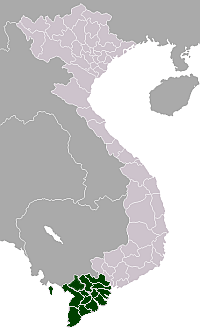Sa Đéc
Sa Đéc is a Provincial city in Đồng Tháp Province in the Mekong Delta of southern Vietnam. It is a river port and agricultural and industrial trading center. The Sa Đéc economic zone consists of Châu Thành, Lai Vung and Lấp Vò districts.
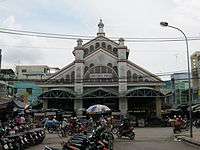
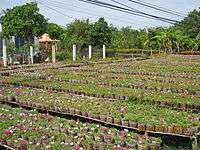
Sa Đéc Thành phố Sa Đéc Đức Thịnh District | |
|---|---|
| Sa Đéc City | |
| Nickname(s): Little Dalat | |
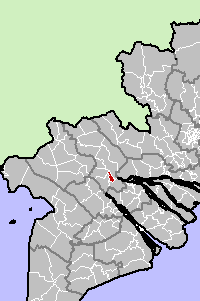 City of Sa Đéc in Đồng Tháp province | |
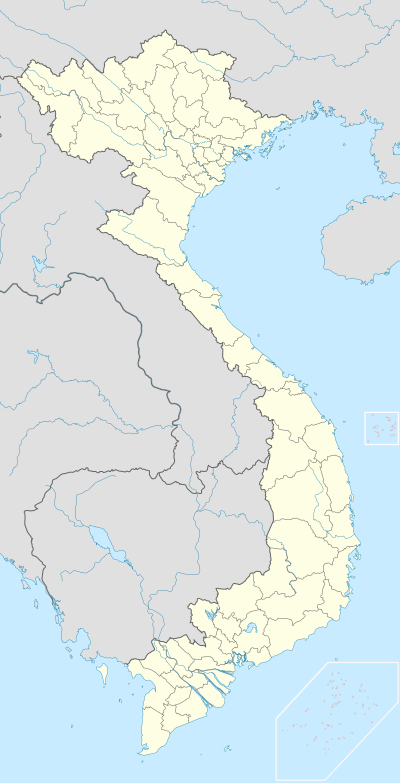 Sa Đéc City of Sa Đéc in Đồng Tháp province | |
| Coordinates: 10°18′00″N 105°46′0.12″E | |
| Country | Vietnam |
| Province | Đồng Tháp |
| Government | |
| • Mayor | Phan Văn Nhiều |
| Area | |
| • Total | 60 km2 (20 sq mi) |
| Population (2019) | |
| • Total | 214,610 |
| • Density | 3,600/km2 (9,300/sq mi) |
| Registered residents only | |
| Time zone | UTC+7 (Indochina Time) |
| Website | http://sadec.dongthap.gov.vn |
As of January 2018, the city has a population of approximately 202,046. There are three industrial zones, designated by the codes A, C1, and C. They attract many businessmen from the Mekong Delta region.
| Wikimedia Commons has media related to Sa Dec. |
History
The name Sa imitates the original Khmer name, Phsar Dek (ផ្សារដែក). It became Vietnamese in 1757.
During the Republic of Vietnam, it was the site of Sa Đéc Base in 1966 and 1967, an American PBR (Patrol Boat, River) base during the Vietnam War. Later on, it became a Swift Boat base.
Before the nineteenth century, it was the capital of Đông Khẩu Đạo, and it was known as one of the largest cities in the Mekong Delta.
Political and administrative system
Sa Đéc has 9 subordinate administrative units:
- Wards
- Ward 1
- Ward 2
- Ward 3
- Ward 4
- An Hòa
- Tân Quy Đông
- Communes
- Tân Khánh Đông
- Tân Phú Đông
- Tân Quy Tây
Economy
In literature
The French writer Marguerite Duras lived in Sa Đéc during the three- to four-year period between 1928 and 1932. Her mother ran a school on the corner of Hùng Vương and Hồ Xuân Hương, where a school still exists today (now it is Trưng Vương Primary School). Duras met Huỳnh Thủy Lê, the son of a wealthy Chinese family, and the two became involved in a love affair that became the basis for Duras's 1984 Prix Goncourt-winning novel, The Lover. The house of Huỳnh Thủy Lê, at 255A Nguyễn Huệ Street, for many years an office for a government agency, has from 2007 been open to the public, with guides offering tours in French, English and Vietnamese.[1]
References
- Richard, m. Movie Review. Wall Street journal.
